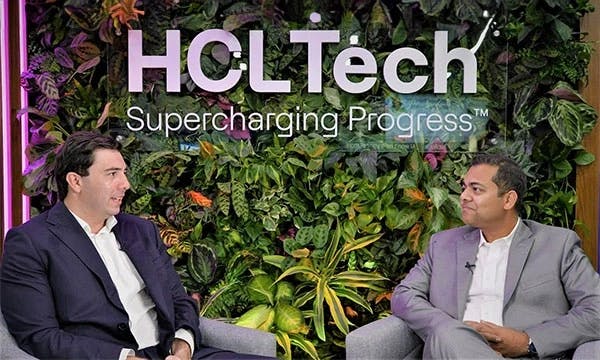The healthcare industry is in the midst of significant transformation, driven by the rise in people with multi-chronic conditions, ageing populations, a lack of healthcare workers and the increasing consumerization of healthcare services. In a discussion with HCLTech Trends and insights, Henrik Amsinck, CIO at Falck, highlighted that the sector is facing a level of disruption reminiscent of the retail industry’s transformation seen years ago. With startups targeting various aspects of healthcare, the traditional landscape is being challenged.
Technologies have been integrated into treatments for many years, but they primarily involved innovations around medical equipment operated by humans. Historically, healthcare relied on static medical devices and in-person consultations, which limited patient engagement and access to real-time health data. This traditional approach is rapidly evolving, as new players enter the market, focusing on empowering patients with better access to health information and services through digital means.
This shift is exemplified by the rise of telemedicine, mobile health applications and wearable technology, which allow individuals to monitor their health proactively. Patients are now equipped with tools that provide instant feedback about their health status, leading to a more informed and engaged consumer base.
Healthcare providers are not merely improving existing services; they are rethinking the entire patient journey. This transformation is driven by the changing needs of patients, requiring the healthcare market to adapt and address these evolving demands for preventive care and personalized treatments. HCLTech has been assisting Falck in its digital transformation journey by consolidating, simplifying and standardizing its IT infrastructure operations through a centralized global service delivery model. By streamlining these processes, the aim is to enable Falck to focus more on delivering high-quality healthcare services while enhancing overall patient care.
Digital health: A shift in patient engagement
A key aspect of this transformation is the rise of personal health monitoring devices where individuals have a deeper understanding of their health status, aided by wearable technology and apps that monitor vital signs and provide early warnings for potential health issues. This shift enables proactive management of health, potentially preventing serious conditions before they manifest.
He identified major technology players — such as Apple and Amazon — as formidable competitors for traditional healthcare providers. These companies are not just enhancing health awareness; they are democratizing healthcare data. “More people will be able to monitor their health affordably, leading to a broader understanding of personal health and wellness,” he explained.
Emerging technologies, including artificial intelligence and machine learning, are also playing a vital role in healthcare innovation. “The data collected from personal health devices will provide invaluable insights for predictive analytics,” said Amsinck. As healthcare providers, companies like Falck must adapt to this influx of data, interpreting it to deliver timely and relevant healthcare interventions.
Strategic priorities for digital transformation
In the face of these changes, Falck has initiated a comprehensive digital transformation strategy. He discussed the challenges faced during the pandemic and how it spurred a renewed focus on technology. “Before COVID, we were struggling to modernize our systems. Now, we have a unique opportunity to leverage our experiences and push forward with digitalization,” he shared.
Part of this strategy involves consolidating legacy systems and investing in new technologies. “We need to clean up our operations first before we can effectively digitalize,” he highlighted. The company aims to streamline its financial platforms and enhance operational efficiency, which will pave the way for the deployment of innovative healthcare products.
Sustainability in healthcare
Denmark’s healthcare system is estimated to account for 6% of the country's total CO2 emissions. Falck has committed to reducing its environmental impact and has committed to science-based targets for emissions reduction.
“We will witness the rise of devices that continuously monitor our health, providing real-time data that can guide treatment decisions,” he predicted. Whether through wearables or implanted devices, the future of healthcare will be characterized by a wealth of information that empowers patients and reshapes the role of healthcare providers.
The traditional model of healthcare delivery will be fundamentally altered. “Patients will arrive at appointments armed with data and insights, expecting us to interpret that information,” he explained. This shift will necessitate a rethinking of how healthcare services are delivered, with an emphasis on collaboration between technology, data analysis and professional medical care.
He stressed that healthcare providers must adapt to the new reality of data-driven decision-making and the demand for accessible, personalized care. Falck’s commitment to digital transformation and sustainability reflects a broader industry trend toward modernization, paving the way for a healthier future.






